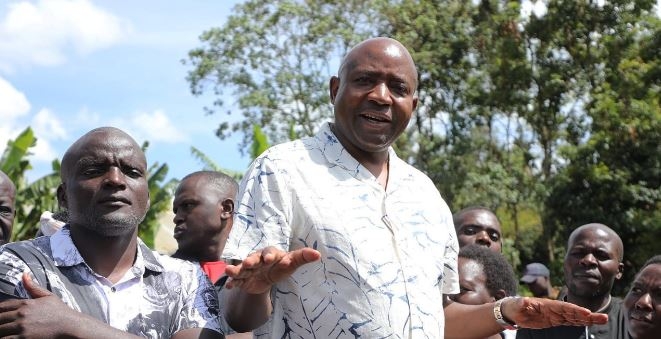Lawmakers are moving fast to enact a law which would pave the way for the recruitment of the Independent Electoral and Boundaries commissioners.
The National Assembly is expected to approve the IEBC (Amendment) Bill, 2024, at the third reading stage, and transmit the same to the Senate for concurrence by the close of business today.
Minority leader Opiyo Wandayi said that the House leadership sat on Tuesday morning to iron out sticking issues in the Bill.
“We were able to thrash out some of the sticking issues, except one. We should be able to dispense with the Bill so that the Senate can be seized of it for us to put in place a functional IEBC within the shortest time possible,” he said.
The proposed law creates a panel of nine to enlist the new commissioners.
The electoral agency has no commissioner.
Chairman Wafula Chebukati and his two colleagues, Boya Molu and Abdi Guliye, retired in January last year.
The other four commissioners, led by Juliana Cherera, were kicked out for rejecting William Ruto's election as president.
The country is already in a crisis in the wake of a dysfunctional IEBC, rendering by-elections impossible.
The panel that was hired to replace them had to cut short its tour of duty to pave the way for the ODM leader Raila Odinga and President William Ruto dialogue.
The Senate is reportedly equally gearing up to race the Bill through the various stages of consideration – first, second and third reading.
Among the considerations is whether to conduct a fresh round of public participation on the legislative proposal, which among others seeks to have the electoral commission CEO serve a single term of six years.
It is understood that the Senate may consider the public participation process at the joint committee, which considered the proposed law.
Normally, a bill takes 14 days to be published, and about 90 days to go through the consideration stages before the president assents.
While this was a bill out of the National Dialogue Committee process, others take longer unless prioritised by the House Business committees.
Earlier, Senate Justice committee chairman and Bomet Senator Hillary Sigei hinted to the Senate skipping the engagements in the consideration.
“To save taxpayers' money and also beat time, we may not need to conduct another round of public participation when this Bill would be before us,” he said.
National Assembly clerk Samuel Njoroge told the Star on Wednesday that they were limited of time, but the Senate was free to decide on its procedures.
“We have a central concern that we need an IEBC in place as soon as yesterday considering the outstanding by-elections. But Senators will decide how to deal with the bill once it is passed in the National Assembly today,” he said.
Going by the cycle of approving bills, the Senate may take up to eight weeks to consider and approve the legislation or less.
Eyes are on the House considering it is set to proceed on a short recess on May 31, meaning they may approve the Bill before taking leave or thereafter.
“We may save taxpayers a lot of money if we consider the public participation at the joint sitting as sufficient. The committee will, however, make a decision on this matter when it arises,” Sigei said.
The proposed law says the current team will cease to exist when the Bill is enacted, although the members could be re-nominated.
“The selection panel existing immediately at the commencement date of this Act ceases to exist but a person who served as a member of that selection panel may be nominated to serve as a member of a selection panel appointed under this Act,” it reads in part.
Besides by-elections, boundary reviews were to be done by the end of March, but that is yet to happen, staging a constitutional crisis.
Up to 27 constituencies are affected following the delayed review.
The changes in the IEBC law include the requirement that only parties with more than 17 members in Parliament may nominate a representative to the selection panel.
“A parliamentary party means a party or coalition of parties consisting of not less than five per cent of the membership of the National Assembly,” the changes read.
The proposed law bars the electoral commission vice chairperson from taking up the role of chairperson in case of a vacancy.













